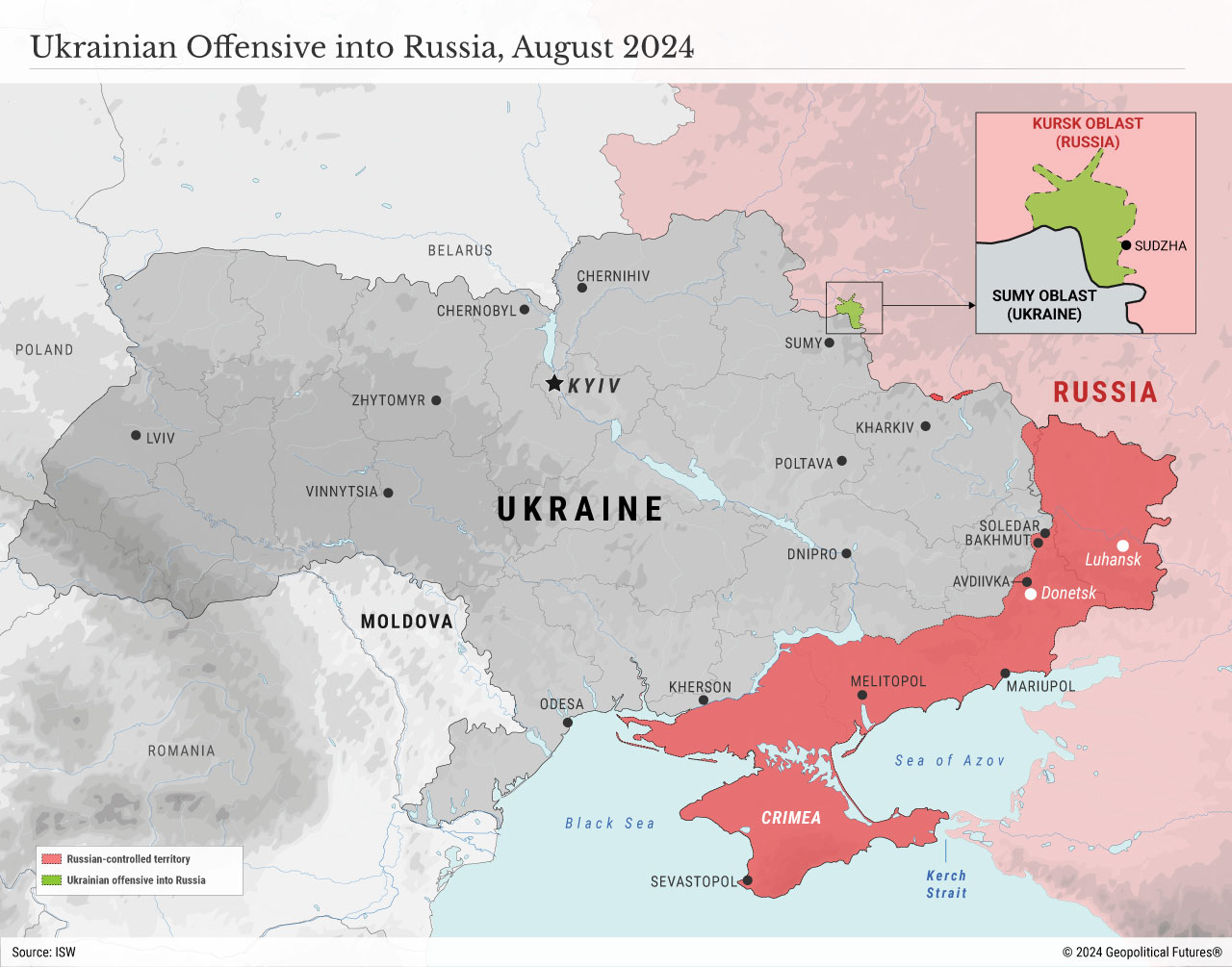Last week, Ukraine did what many thought impossible when it invaded Russia – and, indeed, something that had not happened since World War II. The implications are many, but first, some context.
Russia invaded Ukraine in 2022 to block what Moscow believed was a potential path of attack by NATO. Moscow thought Ukraine was weak and divided, and it concluded that an invasion would rapidly destroy Ukrainian forces and allow for Russian occupation. Time was of the essence. Every minute the war dragged on was a minute in which the U.S. or NATO could intervene. The government did not expect and thus did not plan for a long and costly war, and it has been paying for its mistake ever since. Even so, Russia believed it still had one important advantage: It dominated the battlefields. If Moscow could not control the strategic aspects of the war, it could at least control the tactical aspects. In this way, it was able to keep Ukrainian forces on the defensive – until last week, when Ukraine invaded Kursk oblast.
How Ukraine was able to invade Russia isn’t yet exactly clear. Sometimes a military falls into a pattern in which certain things are seen as impossible. Sometimes a military lacks or ignores intelligence. Russia began the war on poor intelligence, so a similarly massive intelligence lapse that failed to predict an invasion would be consistent with the pattern. It’s no secret that Russia has turned to North Korea and Iran for additional weaponry lately, so it’s possible Ukraine saw this as the moment of weakness it was. After all, it’s unwise to depend on easily severed foreign supply lines and to admit you’re running out of weapons.
In some ways, the cause of the invasion is less important than the fact that the offensive happened at all. But what is also significant is the circumstances under which the world found out. The invasion likely took place on Aug. 6, but remarkably Ukraine was able to maintain operational discipline of a major military and public relations success for days until President Volodymyr Zelenskyy broke his silence on Aug. 10. The army itself stayed quiet even as it was on the move. That’s no small feat for a force that has been seen as brave but not necessarily always effective. This will no doubt boost the morale of soldiers and civilians alike.
Meanwhile, it’s unclear why Moscow would announce an attack on its territory when for two years it has maintained a policy of deliberately creating an air of confusion. The most likely explanation is that the government concluded that the public was exhausted by the war and increasingly distrustful of government-issued information. Another intensification of the war might be better met, the Kremlin may have concluded, by honest reporting. Managing public perception is essential in all conflicts, but it is especially so in this one. That goes double for Russia, whose citizens seem unclear about the need for the war and its execution.






